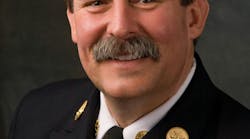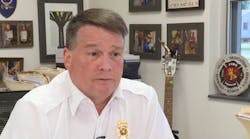It was two years ago when I asked “What Is Going On?” in my editorial in regard to the decline in firefighter job applicants and people who are leaving departments. Yes, some of the roster issues were from retirements and those who left because of COVID-19, but the scope of the problem seemed much deeper. Those who “were living the dream” were leaving departments to seek the dream elsewhere, and it continues.
A few weeks after that article was filed, I attended Wingspread VII, which is a gathering of fire service champions and luminaries, in Wisconsin. The diverse group of fire service leaders gathered, as they do every five years, to focus on current conditions in the fire service and to identify any potential issues in the coming years. Hours of discussion in breakouts and big groupthinks considered updates to the hiring processes, member burnout and work conditions, and opportunities for improving work/life balance, which has become a focus of corporate America.
Fast forward to last month when I attended The Fire Chiefs Summit in Orlando. Various roundtables focused on mental health, cancer, budgeting, equipment procurement, EMS and workload volumes, among others. Between meetings and roundtables, the word staffing continued to resonate between the chiefs of departments, big and small, from across the country.
The week after the Summit, I talked with chiefs in two parts of the country who are struggling to backfill vacancies. One department hosted five entrance exams in 16 months for 18 positions. During that process, hiring mandates still were in place. The department expected to need to backfill a few more positions that were left vacant by those who suffered burnout from overtime. The other department lost recent hires to area departments that pay higher salaries than it pays and a few other factors.
Some of the solutions that were proposed during The Fire Chiefs Summit included changes to shift lengths and hours and to living incentives.
One city is looking to leave the 24/48-hour shift schedule and return to 10-hour day shifts and 14-hour night shifts, so firefighters can be more involved at home. Another department is weighing a hybrid option of 8-, 12- and 24-hour shifts, to offer flexible hours. The latter is a little worrisome to me because of its effect on crew continuity when the bells ring. Meanwhile, another department is looking to leave the 10s and 14s for a 24-hour shift to reduce commutes.
Among the incentives that are on the table are offering affordable housing costs, so members can live in the city and decrease commute times, and increasing pay to keep tax money in the community.
Some communities had great success with attracing lateral transfers, but that left voids in other departments, and the issue snowballed.
Recruitment and retention was a focus of conversation at the National Volunteer Fire Council Training Summit in June, too. There, some departments shared that they are having success finding new volunteers. A good reminder was that volunteers don’t have to be just suppression and that they can be EMS-only. One community changed its recruitment messages to Spanish, because the majority of its residents didn’t know that help was needed. The department grew its ranks.
Words from a Retiree
Switching gears on the topic of careers, I wanted to share with you some of what was said by Deputy Chief Daniel DeYear, who retired after a 40-plus-year career in the fire service, including more than three decades on Dallas Fire Rescue, at his retirement party. He imparted wisdom to those who still are on the job, saying, “Look around this room. Whether you’re a chief, an officer or a firefighter, you need to remember that we all started as firefighters. That is our roots, and it will always be us.”
DeYear’s advice for what members are to do when they are called to solve others’ problems was simple: “What we have to do is solve the flippin’ problem. That’s what they expect of us. They trust us.”






